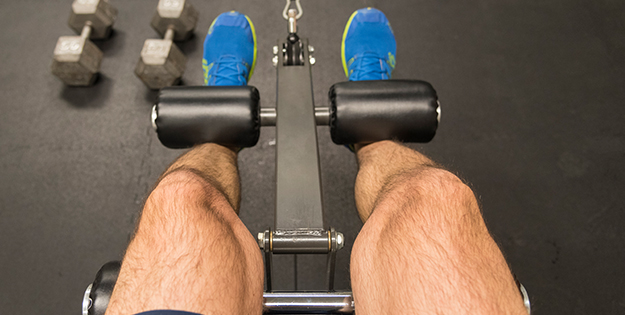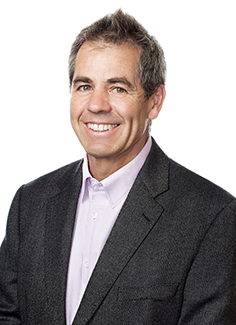Lifestyle
Copyright@ Australian Catholic University 1998-2026 | ABN 15 050 192 660 CRICOS registered provider: 00004G | PRV12008
Copyright@ Australian Catholic University 1998-2026 | ABN 15 050 192 660 CRICOS registered provider: 00004G | PRV12008

The seemingly endless stream of fad diets and exercise trends can bamboozle even those with a high health IQ. So we enlisted the world-renowned researcher, Professor John Hawley, to coach us through the finer points of fitness and food.
In the age of #fitspo, CrossFit and ketogenic smoothies, it’s almost impossible to check your Instagram account without being bombarded by pics of self-appointed gurus touting the best new diet or workout, above an arsenal of undecipherable hashtags.
But with so many so-called experts claiming their chosen eating regime or training program is #lifechanging, how do you know who to trust?
Enter Professor John Hawley, Head of the Exercise and Nutrition Research Program, and Director of ACU’s Mary MacKillop Institute for Health Research. Fed up with the amount of “dis-information” he was seeing online, he teamed up with Professor Louise Burke, Head of Sports Nutrition at the Australian Institute of Sport, to expose some of the most common diet and exercise myths.
“The online media generally likes a good story rather than good facts, so while there is a wealth of information online, much of it is what I call ‘dis-information’,” Professor Hawley said.
“Sometimes the message from scientists isn't sexy … you’re not going to lose 10 kilos just by doing this one thing, you can’t just change your life overnight. People want the quick fix but the truth is there isn’t one.”
So let’s slow down for a moment, forget about hashtags and get a true expert’s take on how you can better your health, in the short and the long term.
Your favourite pants don’t fit, you feel a bit chubby and the mirror’s being downright rude. So you’re tossing up between starting a new fitness regime, and going on a diet.
But what’s more important for weight loss, calories or crunches?
The short answer: you need to pay attention to both.
“Even as an exercise physiologist, I would say that exercise on its own is probably not going to get rid of those kilos, and dieting (that is, restricting the amount of food you eat) is also not wildly successful in the long term,” Professor Hawley said.
“You need to focus on both your fitness and nutrition and a change in lifestyle.”

Professor Hawley advocates regular exercise because of its myriad health benefits.
“When people exercise they tend to pay more attention to what they eat, so it’s a double whammy: you start exercising, you feel better, you eat healthier food and sometimes you eat less, and I know that sounds paradoxical, but the studies show that quite clearly,” he said.
And the positive effects are felt for a long time after you’ve hung up your gym towel.
“Exercising one hour out of 24 is not a lot in the overall scheme of things, but physical activity, especially vigorous exercise, slightly increases your resting metabolic rate for the remaining 23 hours,” Professor Hawley said.
“Certain types of exercise, such as lifting weights, also increases muscle mass, and if you have a higher muscle mass you're burning more calories just sitting down. It’s like leaving your car turned on in the garage humming over — it's not in gear, but the engine is on and it's burning more fuel, more calories.”
Another year, another fad diet championed by a celebrity or a self-proclaimed diet guru.
But while some could help you shed a few kilos in the short term, they rarely have lasting benefits.
“You may lose some weight in the first few weeks or months, but by the time a year’s up you'll likely be back to your original weight,” Professor Hawley said.
One problem with diets that cut out food groups or preach energy restriction is that people rarely stick to them.
“The basic idea that you should eat real food is a very good one, there's no question about that, but the idea that you should eliminate certain food groups is crazy,” Professor Hawley said
He recalled interviewing participants in a recent study who had tried upwards of 15 different diets, none of them successful.
“They'd tried fasting, the 5:2, low carb, high fat, paleo ... and that was both alarming and sad, because none of them had worked in the long term,” he said.
“I think it’s phenomenally important to nurture a positive, easy relationship with food, and I think most energy restricted diets are likely to do the opposite.”
“Scientists are one step closer to creating exercise pill”
“A pill to make exercise obsolete”
It is media headlines like these that Professor Hawley has firmly in his sights when he dons his mythbuster hat.
“It’s a particular bugbear of mine … scientists who are looking at developing a pill that will mimic the effects of exercise,” he said.
For those who are incapable of exercise and the couch potatoes who simply don’t like moving, a pill that does the work for you may seem like a dream come true.
But Professor Hawley fears the headlines may be giving people false hope.

“I'm quite happy to go on record and say that in my lifetime, and probably your child's too, there will never be such a pill, because exercise has such far reaching effects on just about every tissue in the body, including the brain,” he said.
“Exercise makes you feel better, it works wonders for your bones, your heart, your muscles, your brain ... and there is never going to be a pill that does all that.”
Low carb beer, wine and pasta. Cauliflower ‘rice’ and spiralised sweet potato ‘spaghetti’. Gluten-free pizza and noodles.
The common thing about the above foods: They’re generally low in carbohydrates. And we all know that carbs are the enemy of those who crave a slim silhouette and six-pack abs.
Not so, according to Professor Hawley, who has a simple explanation for those who lose weight on low-carb diets.
“Carbohydrates when stored in the body grab onto water, so you can rapidly lose two or three kilos in a week merely by restricting carbohydrates, which will simply reduce the amount of water stored in your muscles and liver,” he said.
"It’s encouraging in the first few weeks, that's for sure, but carbs are the body’s go-to fuel source, so you'll likely find you won't be able to do much intense exercise because you won't have the energy.”
The diet du jour is the ketogenic diet, an eating regimen that advocates starving the body of carbs, forcing it to turn fat into ketones for use as energy.
“If you want to lose weight quickly, most of the short-term ketogenic diets will do that in a heartbeat … but for long-term efficacy, the jury is very much still out, ” Professor Hawley said.
“My problem with the keto diets is that living on a high fat diet can be anti-social ... your breath is ghastly, your exercise capacity is reduced, it’s linked with poor sleeping habits ... there are a variety of things which don't add up on a day-to-day level.”
So what about protein?
Well, it turns out that high protein diets have been shown to be effective for weight loss.

“It doesn't really matter whether it’s through plant, animal or dairy, but the studies do show quite clearly that increasing protein intake is good for weight loss, especially when it comes to maintaining your muscle mass,” Professor Hawley said.
“Protein helps you feel full, it promotes muscle growth and has a range of health benefits and is a relatively easy food group to consume more of.”
Forget fast food, these days it’s all about fast fitness.
Professor Hawley has long been a fan of High Intensity Interval Training (HIIT), which involves short, sharp bursts of exercise in less time than you can down a ham and cheese croissant.
Which means that being time poor is no longer a valid excuse for not exercising. Seven minutes may be all you need.
“High intensity interval training is very potent, it doesn’t require access to gym equipment and it’s very time-efficient … I defy anyone who claims they can’t find 10 minutes in a day to do something so good for their health and longevity,” he said.
So, why is HIIT so effective?
“It gives the body a good blast,” Professor Hawley said.
“High intensity training places extraordinary demands on the cardiovascular system and also helps to remodel the skeletal muscle, so you get a big bang for your buck in a much smaller time frame.”
Want to know more about HIIT? Check out some of Professor Hawley’s research.
If this is all starting to sound like too much hard work, there is another way to stay fit and healthy without needing a drawer full of new sweatbands.
Simply walk more. That might mean getting off the bus one stop early, parking your car a few streets away from your destination so you can walk the rest of the way, or taking the stairs instead of the lift at work.
"Most people don’t move very much because we’ve removed the potential for incidental, non-formal activity in public spaces by placing lifts and escalators everywhere,” Professor Hawley said.
“We've got to go back to basics and design circumstances and environments where it’s easier for people to move … not necessarily going to the gym and sweating, you can just walk up a flight of stairs.
“For those who work in sedentiary jobs and are unfit — simply walk four or five flights of steps four or five times a day, I assure you, that’s enough to get you started on the road
to good health.”
Professor John Hawley is a world-renowned exercise physiologist who has published more than 260 scientific manuscripts and written more than 100 articles for technical journals. His primary research focus is the interaction of exercise and diet on the regulation of fat and carbohydrate metabolism.

He is the Director of ACU’s Mary MacKillop Institute for Health Research.
Copyright@ Australian Catholic University 1998-2026 | ABN 15 050 192 660 CRICOS registered provider: 00004G | PRV12008